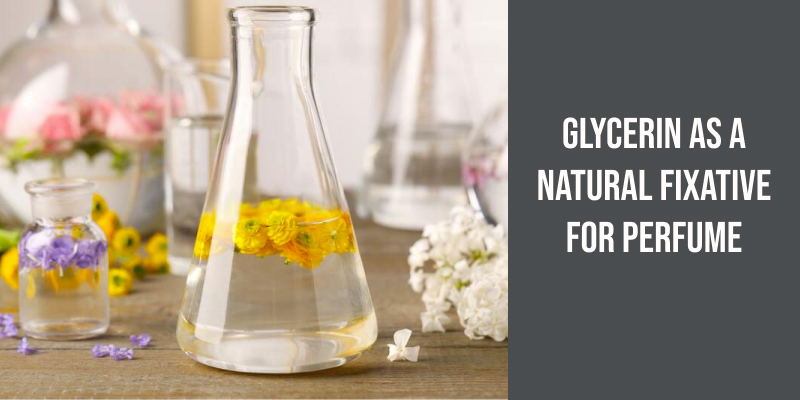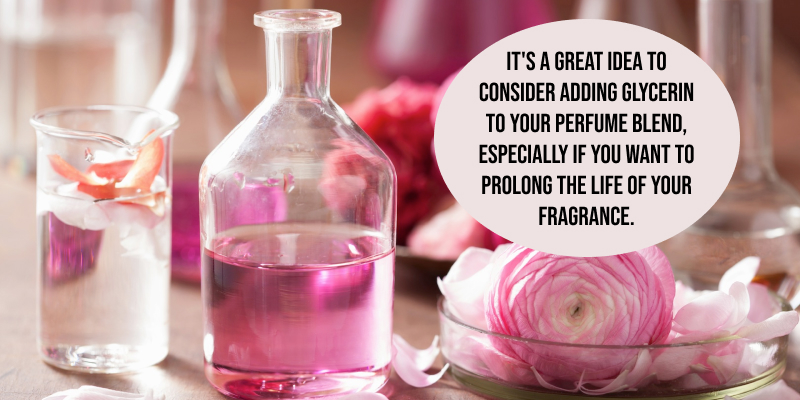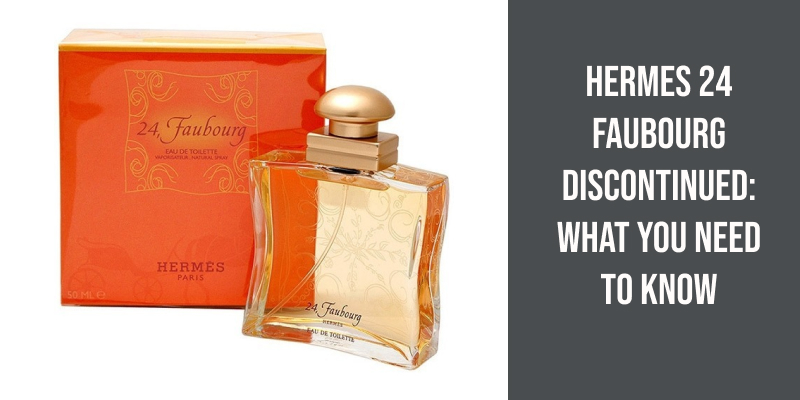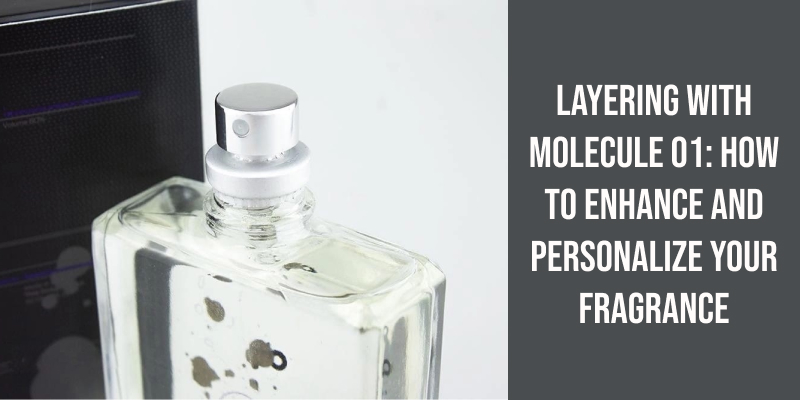Glycerin can indeed serve as a natural fixative for perfume. This thick, colorless, and sweet-tasting liquid not only helps the scent to linger longer but also slows the evaporation rate of the perfume’s other components. It allows the lighter notes to fade gradually, leaving behind the heavier notes to continue the olfactory experience. Moreover, being a humectant, glycerin contributes to the moisturizing effect of the perfume, enhancing not just the scent but also the skin’s health. Overall, the integration of glycerin can improve the lifespan of a perfume and enhance its overall performance.

What Fixative Makes Perfume Last Longer?
This chemical compound is a clear, colorless liquid that’s commonly used in various cosmetic and personal care products, such as perfume, lotion, and deodorant. It’s known for it’s ability to enhance the shelf life of fragrances, ensuring that the aroma remains potent and appealing even after extended periods of time.
Ethyl hexyl glycerin works as a fixative by forming a film over the skins surface, which helps to retain the fragrance molecules. This film is resistant to water and other environmental factors, allowing the scent to linger for a longer duration. Additionally, this fixative is known for it’s moisturizing properties that can help to soothe and hydrate the skin.
Since ethyl hexyl glycerin has a neutral odor, it doesn’t interfere with the overall scent of the fragrance. This makes it an ideal choice for perfumers who want to preserve the original aroma of the fragrance. Moreover, unlike other fixatives, this chemical compound doesn’t contain any harmful chemicals that can irritate the skin or cause any health issues.
Using a good fixative is important because it ensures that the fragrance remains stable and consistent over time.
How to Properly Apply Fixatives in Order to Get the Most Out of Your Fragrance
- Choose the right type of fixative for your fragrance. There are many options including natural fixatives like beeswax and synthetic fixatives like diethyl phthalate. Consider the scent you’re trying to preserve and find a fixative that complements it.
- Apply the fixative to your fragrance in small amounts at a time. Adding too much fixative can overpower the fragrance and ruin the scent.
- Blend the fixative and fragrance together by rolling the perfume bottle gently between your palms. Do this for about one minute.
- Let the perfume sit for at least 24 hours before using it. This allows the fixative to fully bind with the fragrance and create a longer-lasting scent.
- Store your perfume in a cool, dry place away from direct sunlight. Heat and light can cause the fragrance to deteriorate and lose it’s scent.
Now that you know how adding glycerin can help your perfume last longer, it’s time to dive deeper into the process of creating your own unique scent using essential oils. Not only is it a fun and creative activity, but it also allows you to tailor your fragrance to your personal preferences. Keep reading to learn more about the art of making your own perfume.
Can I Add Glycerin to My Perfume?
It’s a great idea to consider adding glycerin to your perfume blend, especially if you want to prolong the life of your fragrance. Glycerin is a clear, odorless liquid derived from plant-based sources that works as a natural humectant.
It’s also safe to use in skincare products and is commonly used as a base in many cosmetic formulations.
Start with a few drops and gradually increase until you achieve the desired consistency.
The amount of glycerin you use in your perfume depends on the type of fragrance you’re trying to create. If you’re making a stronger, more concentrated perfume, you may need to use more glycerin to keep the scent from evaporating too quickly. Experiment with different amounts to find the perfect balance of glycerin and essential oils.
If you plan to sell or give away your homemade perfume, make sure to use a preservative to ensure the safety of your product.
It’s a natural, safe ingredient that can help keep your scent fresh and long-lasting throughout the day. Experiment with different amounts to find the perfect balance, and consider using a preservative for safety if sharing or selling your perfume.

How to Create a Personalized Perfume Using Glycerin and Different Essential Oils.
- Select your preferred essential oils.
- Choose a base oil like glycerin or carrier oils.
- Mix the essential oils together.
- Add the desired amount of essential oil mixture to the base oil.
- Shake well to blend all the oils together.
- Store the personalized perfume in a dark bottle.
- Apply the perfume to your body as desired.
In order to create a long-lasting and effective homemade perfume, it’s important to utilize a fixative. While there are both natural and synthetic fixatives available, many experienced perfumers prefer to use natural ingredients, such as resinoids and animal products. By using a fixative in your homemade perfume, you can ensure that the scent will last for hours and fully develop over time.
How Do You Make Homemade Perfume Last Longer?
One of the biggest challenges with homemade perfume is getting it to last longer on the skin. Many natural fragrances tend to dissipate quickly, leaving you feeling like you need to reapply multiple times throughout the day. However, there are some tips and tricks you can use to help your DIY scent last longer.
First and foremost, it’s important to moisturise your skin properly before applying any perfume. This not only helps to keep your skin hydrated, but it also creates a base that allows the perfume to cling to your skin more effectively. We recommend using an unscented oil-based moisturiser or body oil, as this won’t interfere with the scent of your perfume.
Spritz your perfume onto the areas of the skin where the scent will last the longest, such as the wrists, neck, and behind the ears.
When applying your perfume, it’s important not to overdo it. Many people make the mistake of spraying too much perfume at once, which can actually make the fragrance dissipate faster. Instead, try spraying a small amount onto your wrists and neck, and then gently pressing the fragrance into your skin with your fingertips.
Finally, it’s important to store your homemade perfume properly to ensure that it stays fresh for as long as possible. Keep it in a cool, dark place away from direct sunlight and heat, and make sure the bottle is tightly sealed to prevent evaporation. With these tips and tricks, youll be able to enjoy your DIY fragrance for longer than ever before.
What Is a Fixative for Homemade Perfume?
There are also synthetic fixatives such as ambrox, coumarin, and musk ketone that are commonly used. A fixative can be added to a homemade perfume to help the fragrance last longer and to enhance it’s overall scent.
Different fixatives work better with certain scents, so it’s recommended to do some research on what fixatives work well with particular notes. For example, vanilla scents tend to pair well with benzoin, while floral scents may benefit from the addition of musk ketone.
Natural ingredients in a perfume can break down over time, causing them to lose their intensity and alter the overall scent of the perfume.
Adding too much fixative can overpower the fragrance, making it smell unpleasant. It can be helpful to start with a small amount and add more gradually until the desired effect is achieved.
Natural fixatives can add depth and complexity to a scent, while synthetic fixatives can provide stability and longevity. By choosing the right fixative and using it in moderation, it’s possible to create a beautiful, personalized perfume that will last all day.
Taking steps to make your homemade perfume last longer can be a game changer in terms of scent longevity and overall fragrance experience. One easy trick to try is moisturising your skin before applying your perfume, which can help lock in the scent and keep it smelling fresh for longer periods of time.
Different Types of Natural Ingredients to Use in Homemade Perfume for Longevity
- Vanilla extract
- Essential oils such as patchouli, sandalwood, and cedarwood
- Citrus peels such as lemon, orange, and grapefruit
- Floral herbs such as lavender, jasmine, and rose
- Mint leaves such as peppermint and spearmint
- Spices such as cinnamon, clove, and nutmeg
- Oils such as jojoba, sweet almond, and coconut
Now that we’ve an understanding of the fixative formula for perfume, let’s take a closer look at it’s significance in the fragrance industry.
What Is the Fixative Formula for Perfume?
Perfume is a popular item for everyone around the world, where day-to-day wear and special occasions call for it’s use. But without a fixative formula, the scent would wear off quickly and end up leaving a bad impression. That’s where the fixative formula for perfume comes in. It’s an important part of the perfume-making process, allowing the fragrance to last longer and maintain it’s intensity.
One of the most commonly used fixatives in perfume making is 1-(2,6,6-trimethylcyclohexyl)-hexane-3-ol. This fixative is typically odorless to many people, but it plays an important role in the overall scent. It works by “rounding-off” the scent of the perfume, which gives it a more pleasant, harmonious feel. It also helps to increase the intensity of the scent, which is important for ensuring that it lasts longer.
To create the 1-(2,6,6-trimethylcyclohexyl)-hexane-3-ol fixative, a process called condensation is used. The process involves combining citral with pentane-2-on, which is then followed by cyclization and hydrogenation.
Creating the perfect scent is a challenging task and requires a lot of experimentation and testing. It’s important to understand the science behind scent creation to ensure that the perfume is balanced and has the desired effect.
Conclusion
With it’s odorless and colorless properties, it doesn’t interfere with the fragrance and only amplifies the scent.




